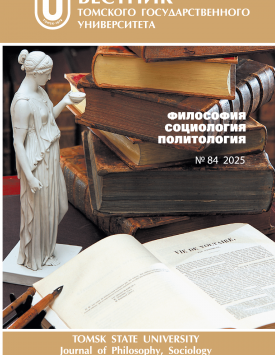The problem of abstract objects in the ontology and semantics of neo-fregeans
This article addresses the problem of abstract objects in neo-Fregeanism, a version of Fregean logicism that holds that mathematical truths are fundamentally truths of logic. Another key thesis shared by most logicists is that there exist abstract objects, such as numbers, sets, and directions, which present significant ontological challenges. Neo-Fregeans Bob Hale and Crispin Wright propose a framework inspired by Frege’s works. Abstraction principles, which typically take the logical form of a biconditional X(a) = X(b) « QR(a,b), are a central elements of their approach. An example of abstraction principles is Hume’s Principle: “The number of Fs is equal to the number of Gs if and only if there is a one-to-one correspondence between Fs and Gs”. Hale and Wright use Hume’s Principle to derive the axioms of arithmetic - a formal result known as Frege’s Theorem, which has been proven consistent. They argue that numbers and other mathematical entities exist independently as objects, identifying “objecthood” with being the referent of a singular term in a true statement. Hale and Wright view abstraction principles as implicit definitions that introduce new concepts contextually; such definitions, they maintain, are analytic truths. Moreover, these principles establish criteria of identity for abstract entities, thereby granting epistemic and referential access. In their examination of Frege’s Grundlagen der Arithmetik, Hale and Wright introduce the notion of “reconceptualization”, illustrating how a single state of affairs can be depicted differently by adopting various “modes of presentation”. However, neo-Fregean ontology has also faced criticism. Nominalist philosophers propose alternative interpretations of abstraction principles. Two main nominalist strategies are reductionism and eliminativism. Reductionism seeks to show that when we speak of abstract objects, we are actually referring to a different category of concrete entities. Eliminativism rejects the truth of abstraction principles altogether. Consequently, abstract objects are excluded from ontology, since any expressions that purport to denote them are seen merely as useful fictions lacking real referential content. One of neo-Fregeans’ primary responses to these criticisms is to argue that the a priori knowledge derived from abstraction principles remains sufficiently robust, and that relying exclusively on empirical epistemological procedures reflects an unfounded orthodoxy. In addition, this article outlines several other challenges facing the neo-Fregean approach to ontology. In conclusion, it is noted that despite these criticisms, neo-Fregeanism continues to attract significant interest from both philosophers of mathematics and metaphysicians. The author declares no conflicts of interests.
Keywords
Platonism, implicit definitions, principles of abstraction, neologicism, neo-Fregeanism, Bob Hale, Crispin Wright, abstract objectsAuthors
| Name | Organization | |
| Burian Veronica V. | Lomonosov Moscow State University | burian.veronika@gmail.com |
References

The problem of abstract objects in the ontology and semantics of neo-fregeans | Tomsk State University Journal of Philosophy, Sociology and Political Science. 2025. № 84. DOI: 10.17223/1998863X/84/6
